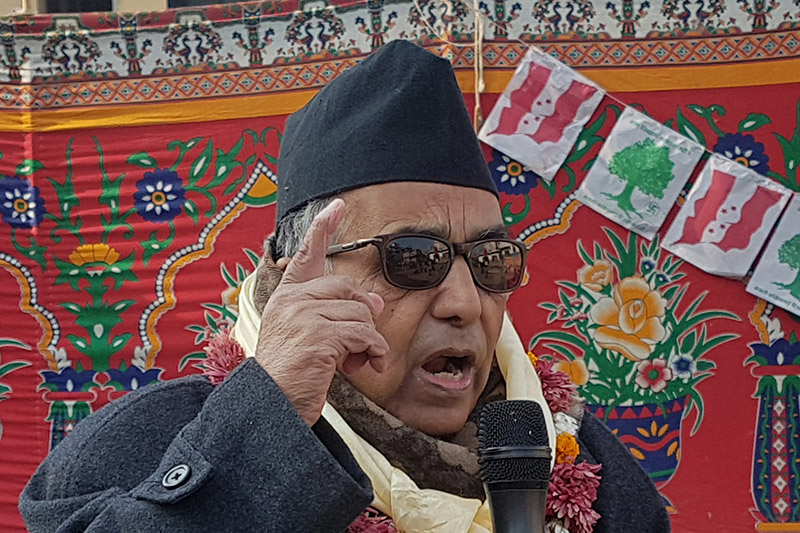Bill on health education ‘not duly passed’
Kathmandu, January 27
Former speaker Daman Nath Dhungana today said the National Medical Education Bill, which was endorsed by the House of Representatives, was not duly passed.
Speaker Krishna Bahadur Mahara asked lawmakers who supported Sections 2 to 53 of the bill to say ‘aye’ and those who were against them to say ‘nay’. The majority of lawmakers said ‘aye’ and hardly anyone could be heard saying ‘nay’. Yet to everyone’s surprise Mahara said, “Majority of lawmakers had said nay, so the sections of the bill have been passed.”
Talking to THT, Dhungana said since the bill was not duly passed it should be reintroduced in the lower House.
Dhungana argued that since the speaker himself said the majority was against the bill how could it be considered passed.
“Any bill has to be passed by majority members of the House. What the speaker said has been recorded and the Parliament Secretariat has no power to change it,” he said.
Dhungana said the opposition parties should ask the speaker in the House to show the record of Friday’s House proceedings. What the Speaker says is the final word in the House,” he added. He said the recording would prove that the bill should be reprocessed.
Parliament Secretariat has, however, said that it had already corrected the mistake while recording the proceedings on Friday. “That was a technical mistake and we have already corrected it,” said Roj Nath Pandey, spokesperson for the Parliament Secretariat. He added that the speaker’s slip of the tongue was not during the process of finalising the whole bill but only during the passage of Sections 2 to 53 of the bill and therefore, such a mistake cannot invalidate the passage of the bill. However, Senior Advocate Surendra Bhandari is all set to register a petition at the Supreme Court challenging the passage of the bill. “Today, I went to the SC to file a writ petition, but it didn’t accept it. I will go tomorrow again to register it,” he said. He said, according to parliamentary rules, the bill’s passage could not be deemed valid.
He said he would invoke Clause 63 of the regulation which stated that the speaker decided what should be included in any bill or proposal and the speaker could avoid the whole or some part of the proposal with a reason.
“As per Clause 65, if a bill has been discussed and finished but has to be reintroduced in the House then it can be done only in the next session of the House,” Bhandari said.
But another senior advocate said the judiciary had no power to look into an issue that was purely an issue of parliamentary prerogative.






